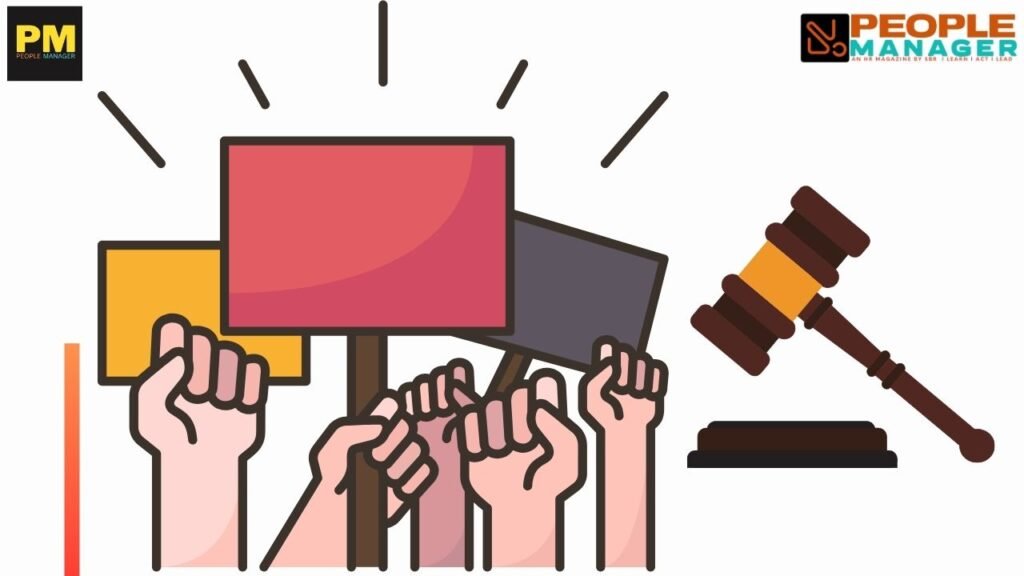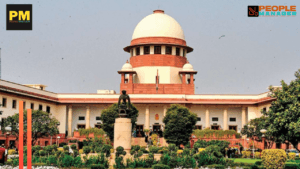Supreme Court ruling: Punishing strikers violates human rights
This follows a move by the government to tighten regulations on strike action, which includes the enactment of laws mandating minimum service standards for striking employees beginning in July 2023.

A UK Supreme Court ruling determined that penalizing workers for participating in strike action violates the European Convention on Human Rights (ECHR).
This follows a move by the government to tighten regulations on strike action, which includes the enactment of laws mandating minimum service standards for striking employees beginning in July 2023.
According to the Supreme Court, earlier interpretations of UK law were in conflict with the ECHR.
Although companies are prohibited by UK law from terminating workers for participating in protected industrial action, the statute was previously construed to exclude a prohibition on exposing workers to any form of harm other than termination.
Due to its incompatibility with the ECHR, this ruling declared that discrimination against striking employees would no longer be permitted.
Regarding the court verdict, Amanda Lennon, an employment lawyer at Spencer West LLP, stated that it will strengthen the rights of striking employees in the United Kingdom.
Her remarks regarding the ruling further bind employers’ hands when it comes to disciplining workers who organize and carry out strike action, which might cause operational disruptions for the business.
“Although strike action is protected by UK law, there are very strict requirements that employees and their unions must make sure they meet.”
The decision was made as a part of the Fiona Mercer v. Alternative Futures Group (AFG) appeal.
Mercer filed a victimization tribunal action in 2020 against the nonprofit AFG, her employer.
Mercer participated in walkouts called by the union UNISON against AFG because the latter intended to reduce the wages of caregivers who worked sleep-in shifts.
After the walkout, AFG suspended Mercer and prohibited her from contacting coworkers or going to work.
The panel observed that even while she received compensation for the period she was suspended, she was not allowed to get paid for the overtime she would have otherwise worked.
According to the 2020 tribunal, which ruled in Mercer’s favor, the law ought to shield her from being harmed as a result of her strike.
Kwasi Kwarteng, the business secretary at the time, then appealed the matter to the Court of Appeal, which overturned the ruling. Following that, UNISON took the matter all the way to the Supreme Court, which this week rendered a decision following a hearing in December 2023.
According to Chris Syder, a partner in employment law at Penningtons Manches Cooper, companies must reconsider their strike action procedures in the wake of this ruling.
“In the interim, employers will need to reconsider their approaches to discourage workers from taking part in legitimate strikes,” he said.
“This decision will be widely publicized within the UK trade union movement, increasing the likelihood of employee complaints if employers impose disciplinary actions, for example, on them for participating in a lawful strike.”
He went on to say that the ruling would push companies to settle conflicts involving walkouts.
According to Syder, the ruling from the Supreme Court is expected to direct employers’ attention toward the prompt resolution of conflicts and could motivate them to intensify their efforts towards enhancing current employee relations.
“This is, after all, a significant victory for the trade unions and will be utilized to call out poor employer negotiation strategies to pressurize staff not to support a lawful strike.”
Lennon explained that while this ruling does not modify current law, it does indicate that parliament will likely reexamine regulations governing the protection of striking workers in accordance with the ECHR.
She stated, “No changes have been made to the law yet; the ruling means that the UK parliament must evaluate and alter the relevant legislation to make it comply with the ECHR.
“This takes time, as an amendment bill will have to pass through the various stages of parliament.”
Read more HR news like this on PropleManager.co.in
Value our content… contribute towards our growth. Even a small contribution per month would be of great help to us. Since our establishment, we have been serving the industry through daily news and updates.
Our content is free for all, and we plan to keep it that way
Support the People Manager. Pay Here
- Pernod Ricard India introduces Cheers VRorld, an industry-first VR-powered onboarding experience in the Alco-Bev sector - February 11, 2026
- Jio-bp Appoints Sareeta Bhatikar as Chief Human Resources Officer to Steer Next Phase of Growth - February 11, 2026
- India Keeps Hiring as Global Markets Slow: Michael Page India Salary Report-26 - February 6, 2026








